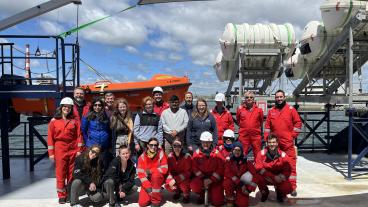Do proximity, partisanship predict support for oil and gas development?
Morgan Bazilian, director of the Payne Institute of Public Policy, is a co-author of a new study in Energy Research & Social Science that seeks to answer that question

The closer voters live to oil and gas development, the less likely they were to vote in favor of Colorado Proposition 112, the rejected 2018 ballot measure that would have increased setback requirements for hydraulic fracturing, new research shows.
Morgan Bazilian, director of the Payne Institute of Public Policy at Colorado School of Mines, is a co-author of the new study, published earlier this month in the journal Energy Research & Social Science. His collaborators were Daniel Raimi of the University of Michigan Ford School of Public Policy and Alan Krupnick of Resources for the Future.
From the paper:
“We find partisan affiliation correlates very strongly with support for oil and gas development, that voters in precincts with higher levels of oil and gas activity are modestly more supportive of the industry, but that this support weakens in precincts where development has grown most rapidly.”
Read the full paper, “Partisanship and proximity predict opposition to fracking in Colorado,” at: https://authors.elsevier.com/c/1aXb87tZ6ZqxcT.




